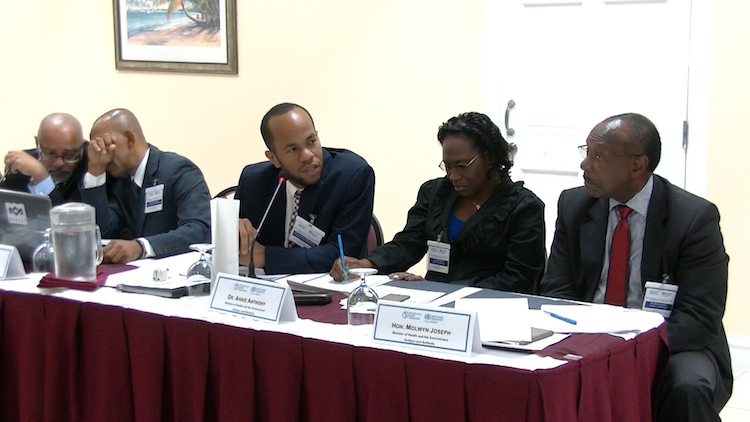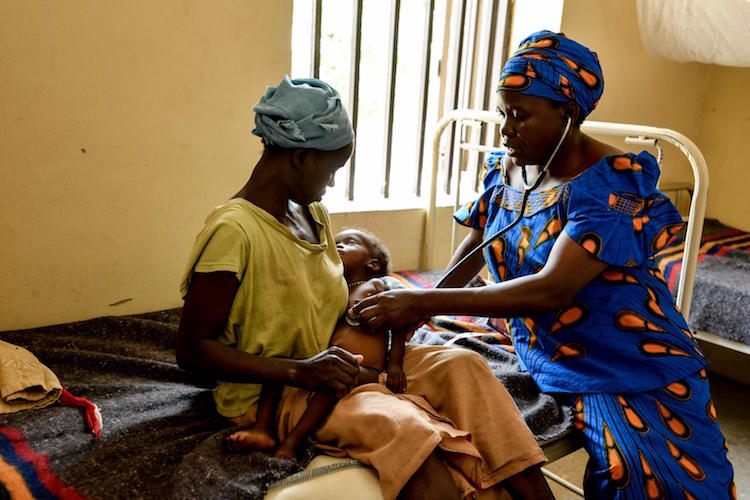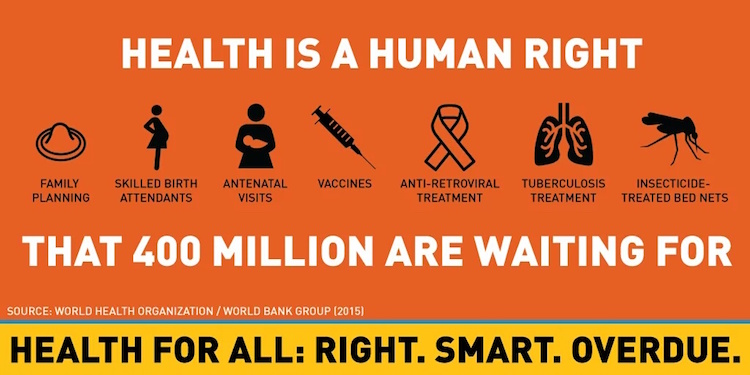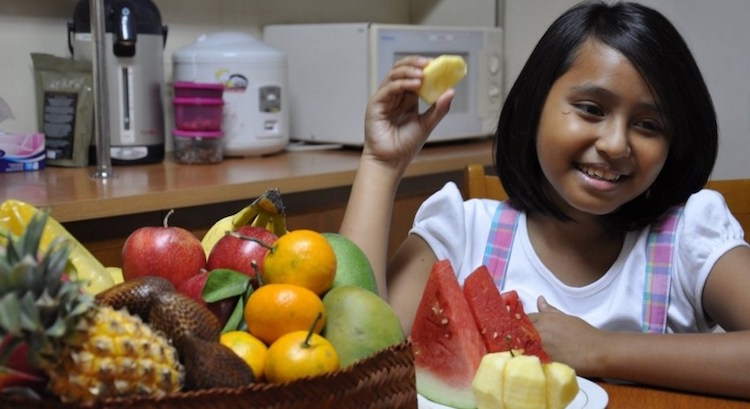By Lisa Vives, Global Information Network NEW YORK | AMSTERDAM (IDN) – The International Conference on AIDS (AIDS 2018) – the largest gathering on any global health issue in the world – opened in Amsterdam, the Netherlands, on July 23 under the title Breaking Barriers, Building Bridges. With hundreds of scheduled talks and roundtables, the […]
Unrestricted Economic Welfare Menaces Human Well Being
By Rita Joshi BERLIN (IDN) – The Sustainable Development Goals and the Paris climate agreement set the target of prosperous development for people and our planet. Yet, it remains challenging to translate these aims into concrete policy implementations without risking human welfare and the Earth ecosystem. A new climate study argues that optimizing economic welfare […]
The Global Fund To Fight AIDS Asked to Change Criteria Discriminating Poor Countries
By J C Suresh TORONTO (IDN) – As this year’s World AIDS Day campaign – My Health, My Right – kicks into high gear, the AIDS Healthcare Foundation (AHF) has called on The Global Fund to Fight AIDS, Tuberculosis and Malaria to end the use of Gross National Income (GNI) per capita as part of […]
Indoor Air Pollution Weighs Heavily on Developing Countries
By J W Jackie
RENO, Nevada, United States (IDN) – While there has been much focus on the consequences of pollution caused by vehicles and manufacturing, the effects of indoor air pollution have been neglected. Households are full of harmful chemicals including cleaning products, beauty products and gas stoves.
As these chemicals become trapped in enclosed spaces, the resultant air quality can be up to ten times worse inside than it is outside. Developing countries suffer low quality air more than wealthier nations, which is why tackling air pollution and poverty go hand in hand.
Arming Health Professionals for Global Diplomacy
By Desmond Brown
GEORGETOWN, Guyana (ACP-IDN) – In recent weeks, African, Caribbean and Pacific (ACP) countries have been fine-tuning their strategy for the May 22-31 annual meeting of the World Health Assembly (WHA), the decision-making body of the World Health Organisation (WHO).
Charged with establishing WHO policies, appointing its director-general, supervising financial policies, and reviewing and approving proposed programme budgets, the WHA is considered highly important by ACP countries because of the increasingly significant role played by health issues on the international agenda.
UNICEF Needs Funds to Keep 244,000 Nigerian Children Alive
GENEVA (IDN) – The United Nations children’s agency UNICEF appealed for $55.5 million early 2016 to respond to the humanitarian crisis in north-east Nigeria, but has so far only received 41 percent or $23 million.
Now that the scale of the humanitarian crisis caused by the Boko Haram emergency continues to unfold, and UNICEF finds that nearly a quarter of a million children are severely malnourished in Borno state, northeast Nigeria, and face a high risk of death, it expects the appeal to increase significantly.
Out of the 244,000 children suffering from severe acute malnutrition in Borno, an estimated 49,000 children – almost one in five – will die if they are not reached with treatment, UNICEF said on July 19, and urged all partners to join the humanitarian response and donors to urgently provide resources.
Right to Health Must Prevail Over All Property Rights
By South Centre*
GENEVA (IDN-INPS | South Bulletin) – A High-Level Panel on Access to Medicines convened by the UN Secretary-General is currently considering a number of proposals to address the policy incoherence between intellectual property (IP) rights, human rights, trade rules and access to medicines.
The final report of the High-Level Panel will be submitted to the UN Secretary-General, who will present the report to the UN General Assembly to take further action.
The South Centre has made the following three contributions (Nos 67, 112 and 113) to the Panel based on the premise that the right to health for all must prevail over trade and intellectual property rules.
Global Health Situation Needs Multiple Actions
Analysis by Martin Khor *
GENEVA (IDN | SOUTHNEWS) – The global health situation is facing many critical challenges, and multiple actions must be taken urgently to prevent crises from boiling over. This is the impression one gets from this year’s World Health Assembly held in Geneva on from May 23 to 28.
The WHA is the world’s prime public health event. This year 3,500 delegates from 194 countries took part, including Health Ministers of most countries. The one-week session provided a snapshot of the major medical problems and the actions being taken or proposed to deal with them.
In her opening speech, World Health Organization (WHO) Director-General Dr. Margaret Chan gave an overview of what went right and what is missing on the global health front.
Antibiotics Threatening to Become Useless
Viewpoint by Martin Khor *
Antibiotics – also called antibacterials – revolutionized medicine in the 20th century. Their effectiveness and easy access led to overuse, especially in livestock raising, prompting bacteria to develop resistance. This has led to widespread problems with antimicrobial and antibiotic resistance, so much as to prompt the World Health Organization to classify antimicrobial resistance as a “serious threat [that] is no longer a prediction for the future, it is happening right now in every region of the world and has the potential to affect anyone, of any age, in any country”. – Editor
GENEVA (IDN | SOUTHNEWS) – Antibiotic resistance – a process by which antibiotics no longer work because bacteria have become resistant to them – has climbed up the global agenda because of growing awareness of the immense threat this poses to human health and survival.









